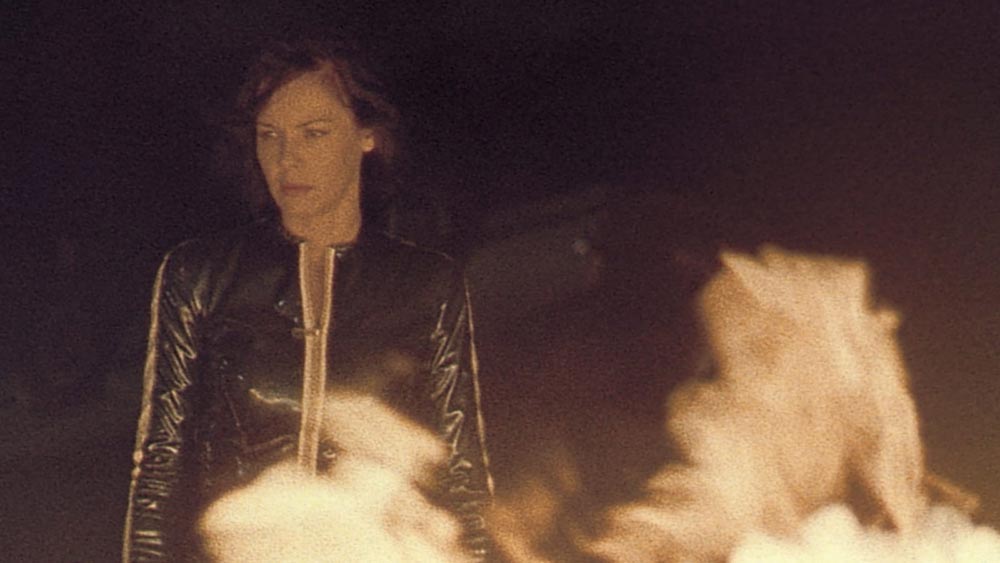“You have to deal with your own repulsion-fascination with the modern world. You can’t escape this unless you are some kind of Jansenist monk,” Olivier Assayas expounded to Reverse Shot in 2008, upon the release of his international sleaze-thriller Boarding Gate. Since Irma Vep in 1996, Assayas has indeed taken it upon himself to grapple with the technological developments of the day — the all-seeing specter of online communication in Clouds of Sils Maria and Personal Shopper, and online publishing in Non-Fiction. In 2002’s Demonlover, Assayas distills a semester’s worth of media studies courses into a queasy corporate horror show about the acquiring and commodifying of digital images. The characters in Demonlover, all of whom are pawns in a cutthroat rivalry between two online pornography distributors, are constantly surrounded by screens — security monitors, PlayStations, an especially explosion-riddled in-flight movie. These glimpses of screens are, ironically, the only moments of the movie that are concretely intelligible. Cinematographer Denis Lenoir shoots everything not seen through a diegetic digital gaze in handheld, widescreen Super 16mm, with the camera purposefully too-close to its subjects. Reality is jittery, blurry, and inscrutable. When a violent crime occurs halfway through, its perpetrator and the audience only believe it actually occurred when later confronted with video evidence. The images we glimpse on screens are gruesome, but the equally traumatizing violence enacted by the characters in boardrooms and across fax lines is coldy, clinically removed — sexual assault delivered via drone strike.
Assayas’s other fixation — mirrored in Demonlover, Irma Vep, and Boarding Gate — is the contracting of the world both through technology and the strengthening of the European Union. Connie Neilsen’s scheming exec and her cryptic, put-upon assistant Chloë Sevigny throw back a sleeping pill, jump on a red-eye, and are in Paris, then Tokyo, then Mexico with the speed of a jump cut.
Demonlover, along with the early films of Christian Petzold, represent an aughts trend in European carnal thrillers about global capitalism that I can’t help but miss, right down to their frigid, glassy color palettes, where offices are rendered a steely, corpse-like blue-gray, occasionally punctured by primary colors, like the red of Sevigny’s blouse. The outfits all seem questionably off — Nielsen’s bucket hat, Gina Gershon’s iconic “I Love Gossip” t-shirt — in a way that’s intrinsically early-2000s. There’s even a gorgeous Sonic Youth score, a cyclical churn of pittering frets and screeching feedback. For a movie that’s such an artifact of its time, it doesn’t feel dated so much as accurate, plausible, predicting the burgeoning anxieties of the time in which it takes place. Its squeamish ending is no less terrifying almost twenty years later.



